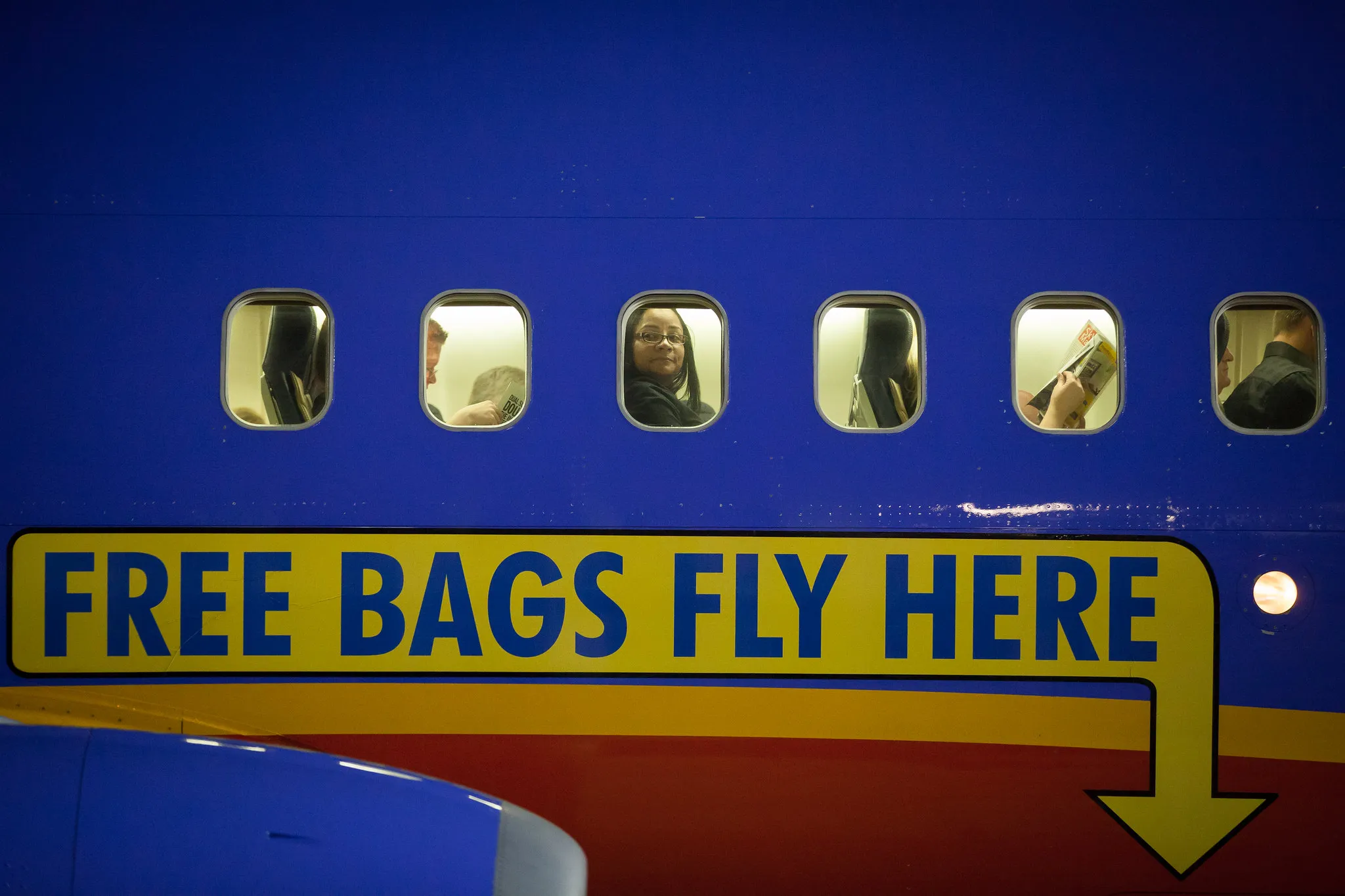Consulting Giant EY Dives Into Direct Blockchain Travel Bookings With American Airlines

Skift Take
EY is the corporate buyer test-driving a new partnership between American Airlines and a blockchain company, Skift has learned, trialling a new way of booking fights that would cut out middlemen like travel agencies and global distribution systems in the future.
The consulting firm is working with Winding Tree, a travel marketplace that uses blockchain technology, according to two sources familiar with the deal who wished to remain anonymous. EY employs more than 310,000 globally so the trial will be significant in scale.
Winding Tree announced its collaboration with the airline on November 16 — perfectly timed to make a splash before the Global Business Travel Association's convention a day later. The announcement stated the collaboration would “equip employees of one of the largest corporate travel buyers in the world with direct access to content from American.”
EY was the fifth biggest travel spender on flights in the U.S. in 2019, totaling $346.8 million, according to the BTN's 2020 Corporate Travel 100.
The airline and blockchain tech firm saw the upside in releasing their news in time for the Global Business Travel Association’s first major event in some time, but did not name the corporate travel buyer. EY declined to comment.
"My understanding of this is it's a proof of concept, done from a leisure perspective, not a corporate perspective," an industry source told Skift. "Will there be a natural migration into some of their corporate program? Yes there will be."
They added the consultancy may look to introduce blockchain bookings in some of its smaller markets, for flights that wouldn't necessarily feature as part of a larger managed corporate travel program, or for where it would be easier to implement.
"Would they do it on the London to New York route? Who knows. But that would be a game changer if that happens because you are seriously impacting the travel agency and global distribution systems," the source added.
Sidestepping the Usual Channels
The high-profile collaboration has implications for the wider corporate travel sector. Winding Tree already works with Air Canada, but it's the size of American Airlines that makes this stand out.
Blockchain is a decentralized, distributed (and sometimes public) digital ledger consisting of "blocks" of data that records transactions. It's like an open-source supply chain, and in theory can offer more transparent and accurate end-to-end tracking, making it possible to monitor assets from production to delivery or use by an end user. In other words, a more direct way of doing business.
“As part of the collaboration, this travel buyer will use Winding Tree’s decentralized marketplace platform to book travel arrangements directly with American Airlines,” the statement said.
A Winding Tree spokesperson said the collaboration therefore “bypasses” the need for a global distribution system, and potentially the corporate travel agency. Winding Tree can also integrate travel management companies if a travel buyer wants such involvement.
The net result is the airline stands to save on distribution costs. Corporate travel buyers, meanwhile, save by not paying travel agency fees. Airlines may not say so, but this may be more about commercial models than anything else.
“We’re always looking for innovative ways to give our customers access to American’s content in the way that’s most convenient for them,” said Neil Geurin, managing director, digital and distribution at American Airlines, in the announcement statement. “Winding Tree provides a frictionless approach to achieving this goal, and we look forward to working closely with them.”
A Better Vantage Point?
Another benefit to this new method is that travel buyers gain more transparency into what they are actually buying from the airline.
"The corporation gets full visibility of the itinerary and all the spend that was attached to it," the source said. "Upgrades, meals, that reporting would come back to the corporation. It also helps corporations with their airline negotiations."
However, while travel buyers get better insight into the total cost of trip, there's currently less scope for comparison. This is an area that some travel technology companies want to see more of. Sabre for example is working on its “new airline storefront” concept to make booking a seat on a plane a similar experience to shopping in a supermarket. Airfare data firm ATPCO is meanwhile continuing to develop its next generation storefront technology. It allows agencies and other sellers to sort and group what it thinks are increasingly complex airline fares.
"What about cross-shopping? That’s a very legitimate question and concern for me," said Scott Gillespie, founder and CEO of consultancy tClara. "Corporate travel buyers like the idea of direct connect, but they don’t like the idea of their travelers not seeing competitive prices from other suppliers. (But) when you ask the travelers, they often don’t care about competitive pricing. They know the airlines they want to take, full stop."
Gillespie added he was skeptical about the need for a blockchain enabled solution. "It calls into question what’s the incremental benefit of a blockchain-based platform versus direct connect," he said. Several airlines already have direct negotiations in place with corporations. Siemens, for example, uses the so-called New Distribution Standard to access special offers from Lufthansa Group. In 2017, Lufthansa Group also become the first major aviation company to partner with Winding Tree.
"I’m not sure how it differentiates itself in a meaningful way from standard technology, but I expect it will be more about the business model rather than the technology," Gillespie said.
Following the American Airlines announcement, more pressure could now be applied to travel agencies to get involved. They themselves may find new roles to play in binding the various blockchain-booked travel components of a business trip together.




